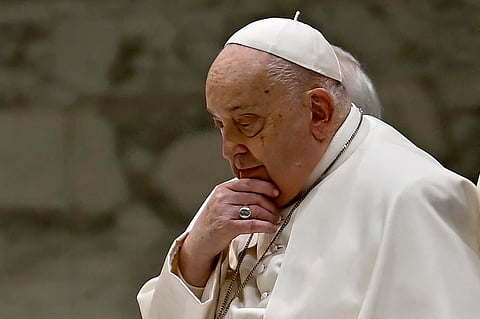
- NEWS
- the EDIT
- COMMENTARY
- BUSINESS
- LIFE
- SHOW
- ACTION
- GLOBAL GOALS
- SNAPS
- DYARYO TIRADA
- MORE

Pope Francis, who passed away after a decade-long papacy marked by humility, compassion and reform, was a Pope unlike many of his predecessors.
Known as the “People’s Pope,” he broke tradition in both style and substance. From riding in a modest Fiat instead of the bulletproof Popemobile, to paying his own hotel bill after being elected, Pope Francis signaled from the start that he was a shepherd close to his flock.
Unlike his more doctrinal predecessors, Pope Francis emphasized mercy over judgment, dialogue over dogma. He spoke openly about poverty, climate change, and the plight of migrants and the marginalized — issues that resonated deeply in the Philippines.
His famous line, “Who am I to judge?” regarding LGBTQ+ individuals, showcased a more pastoral and inclusive tone that appealed to many seeking a Church that listens rather than lectures.
Filipinos, known for their deep Catholic faith and warm hospitality, were particularly drawn to Pope Francis’ genuine humility and heartfelt concern for the poor.
His 2015 visit to the Philippines drew an estimated 6 million people at a single Mass in Luneta, one of the largest papal crowds in history. He visited typhoon victims in Tacloban, stood in the rain with them, and told them, “I am here to be with you.”
For many Filipinos, Pope Francis was not just a religious figure but a kindred spirit —someone who saw their struggles and gave them hope. In a country where faith is woven into everyday life, he embodied the ideals of Christ in action: love, service and compassion.
His papacy may have ended, but his legacy — particularly in the hearts of Filipinos — endures as a reminder that holiness lies not in grandeur, but in grace.
